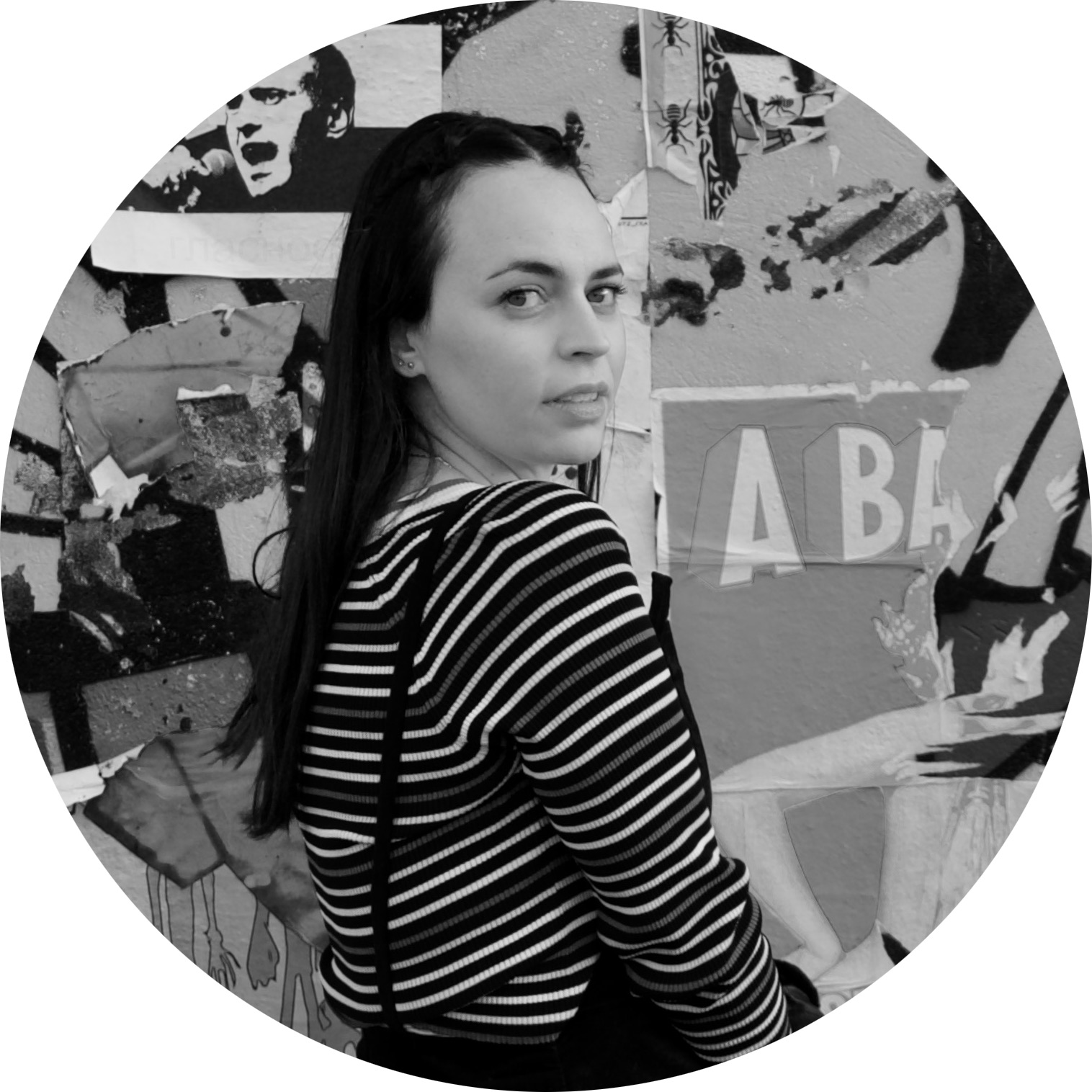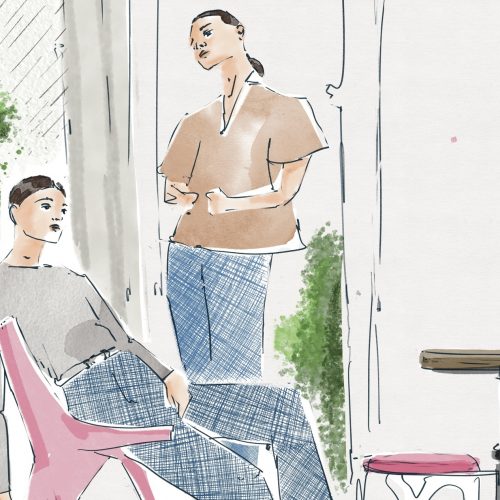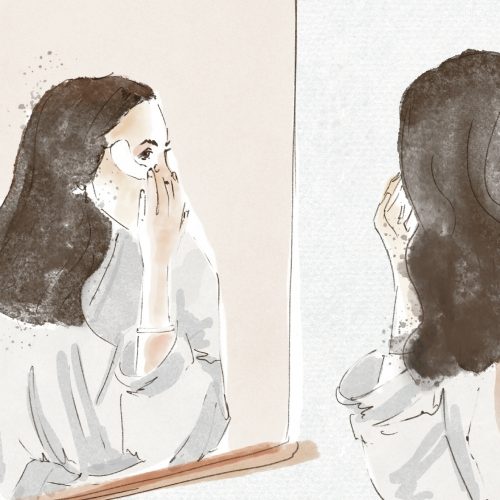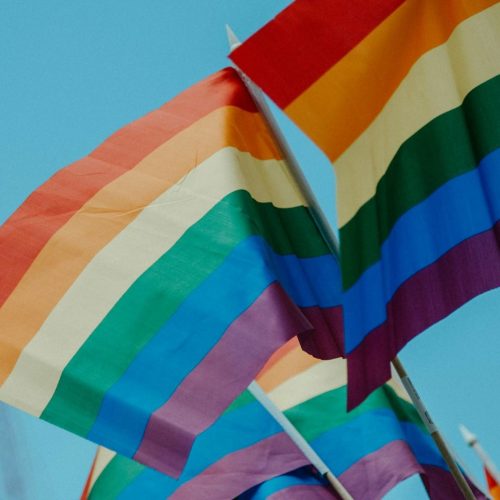Body Positive Movement | A Round Table
We are constantly bombarded with the idea that our bodies are not good enough; we set goals for ourselves that are not real, and we suffer when they are not met. Luckily the body positive movement has come to the rescue. We talked with three women who are fighting the good fight so we can all feel included.
We live in a system that has imposed into us the idea that every body falls out of the norm (the norm being that we must be thin) is wrong. We have been imposed the idea of reaching the “summer body”; we grew up with the misconception that having any kind of difference is bad, and that we must do something to correct it. We sat in a round table with three woman that took all that negativity and transformed it to do something good. Sylvia Mac, Lídia Juvanteny and Ana Lo Pizarro are body-positive activists and influencers; they talked with us and gave us their perspectives.
Sylvia Mac lived a traumatic experience when she was only two years old, she fell into a bath of boiling water and suffered third and fourth degree burns in her back, tummy, legs and sides; she almost died from her injuries. She survived, but that accident left her with scars. In her teens she began to suffer with severe depression, anxiety and suicidal thoughts. After years dealing with her mental health, she decided to found LoveDisfigure, a platform that gives voice to those with different bodies and scars.
“I was inspired to set up LoveDisfigure as I knew there was a need for people who had scarring or visible differences to be included in society. I wanted to raise awareness and campaign towards fashion and beauty industries to become diverse.”
Ana Lo Pizarro has over 17.000 followers on Instagram. She started as a blogger, as many women of her generation started on social media. She started sharing her looks, and the vision she had of fashion, since she had barely none referents of plus size fashion. According to her, realizing that there were no referents, gave her the tip that there was a demand from the public to see plus size fashion on social media. On how she started her journey, she said:
“More than inspiration, it was a necessity. A need of wanting to change things, since I did not see myself represented in the media. And in that moment, it was important that I took a stand. Hey, there are no referents, let’s start reinvidicating that we are here, and that we have all the right in the world of being represented, and to dress the way we like, and wear the fashion that we want.” Ana
Lídia Juvanteny, as Ana, also started her instagram account after realizing that there was no representation of plus size bodies in the fashion industry. She started by showing the clothes she used, and providing information about the shops she bought them. Her tips on fashion, and about shops that sold plus size fashion, turned into activism.
“Things like where to get a pair of jeans, and clothings that was in plus size later turned out into activism; because we believe that no matter the size that one has, we all have the right to feel good in our skin. Society imposes onto us a lot of standards, that we need to break if we want to move forward.” Lídia.
BODY POSITIVE MOVEMENT AS A RESPONSE
In a world dominated by capitalism, that imposes us with unrealistic body expectations, the body positive movement is making a stand. We asked our three ladies about it: ¿How can we fight against the stigma that surround the persons with larger bodies in a culture that is so centered around diets and the perfect body? Lídia responded: "Mainly by realizing that thin and normative people have the same problems. In other words, getting it out of our heads that being thin is going to make us happy"
“The problem I see with this whole diet culture thing is that we've grown up in a system that has imposed that the fat body is wrong, and we're going to be judged and criticized. I think part of that is changing the system. The important thing is to start with ourselves." Ana
THE FASHION INDUSTRY
We said it before: even though the plus size Fashion worldwide is a market that keeps growing, the fashion companies are falling behind and lacking to address it. We see more plus size models on the campaigns, but their bodies still fail to represent the real women out there. Moreover, people with disabilities and gender non-conforming individuals are still missing. There is still a long way to go, and our interviewees shared their views on it: “I think the Fashion Industry is slowly changing when it comes to body positivity and diversity. I would say to brands, designers, fashion houses, model agents: don’t be afraid of diverse bodies. Fashion is for Every Body of all shapes, size, color, age, disability and difference. We all wear clothes and love fashion so please include us too.” Sylvia
"A lot of what I see of plus-size models, I feel, is a bloated version of the slim model. I don't see a real representation of fat women. I think there are brands that do dress fat women, but in the representation of their campaigns I don't see a diversity, I don't see that there's really a change." Ana
At the beginning of the month we saw Pinterest banning ads with weight loss language and imagery. We will no longer be bombarded with testimonials regarding weight loss products, imagery idealizing or denigrating certain body types and ads that reference Body Mass Index. A big step, given that the social media are perhaps one of the main sources of a negative perspective on our bodies. Pinterest is only one social media, out many that have yet to prove and take that step towards inclusivity. We need to see and perceive the change, and work towards a more inclusive society, where all bodies are accepted.
Body positivity is a powerful tool that gives voice to those that have been historically shadowed by society, that have felt unrepresented in the media, in the Fashion Industry, and even in Social Media. The body positive movement is about promoting good self-esteem and an accurate representation of society. Activists and Influencers play a major role, as they show us what can be done, and why it is worth fighting for.

+ Words: Leila Salinas, Luxiders Magazine
Journalist | Berlin-based
Connect with her on LinkedIn or Instagram (@leisalinas)




